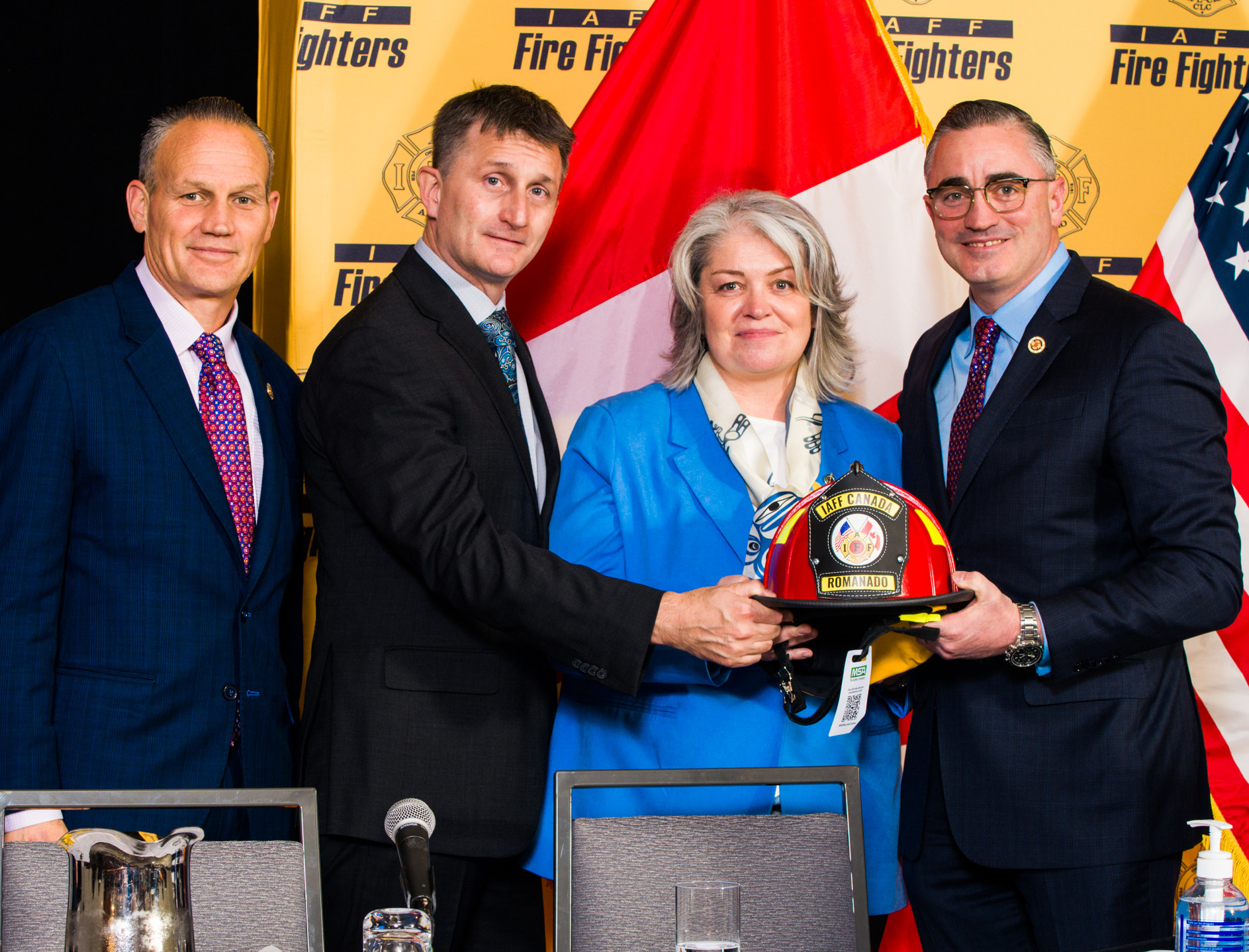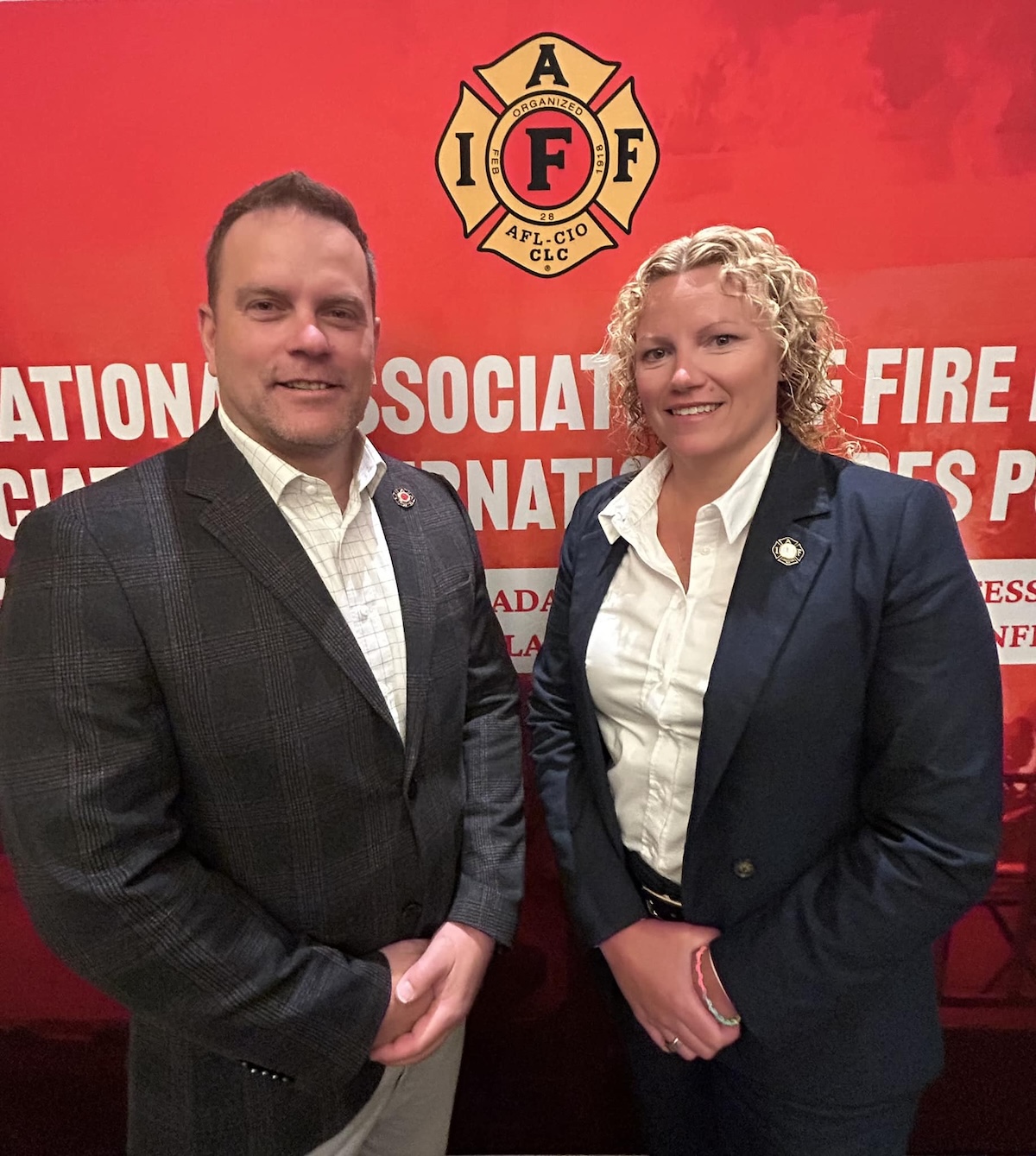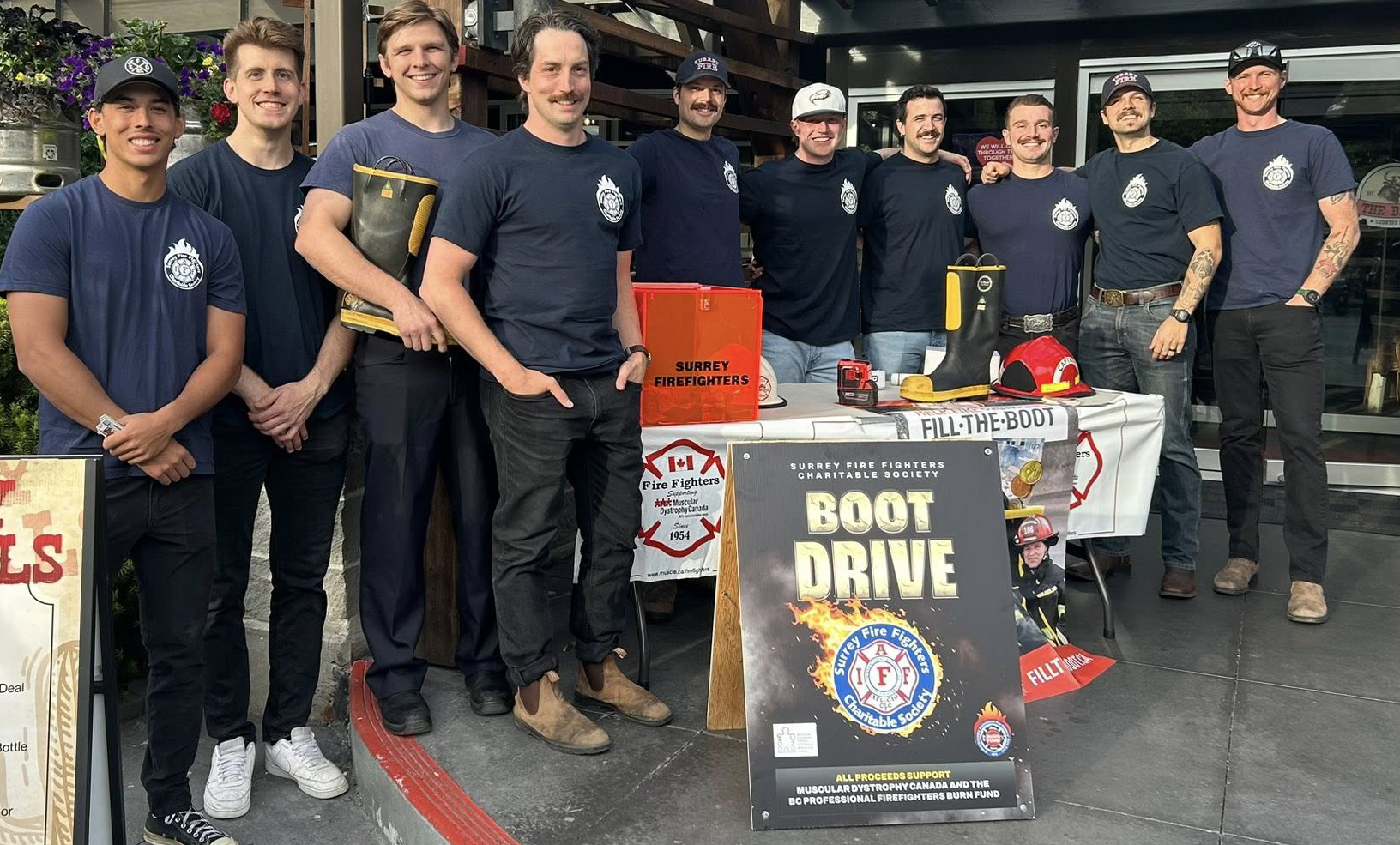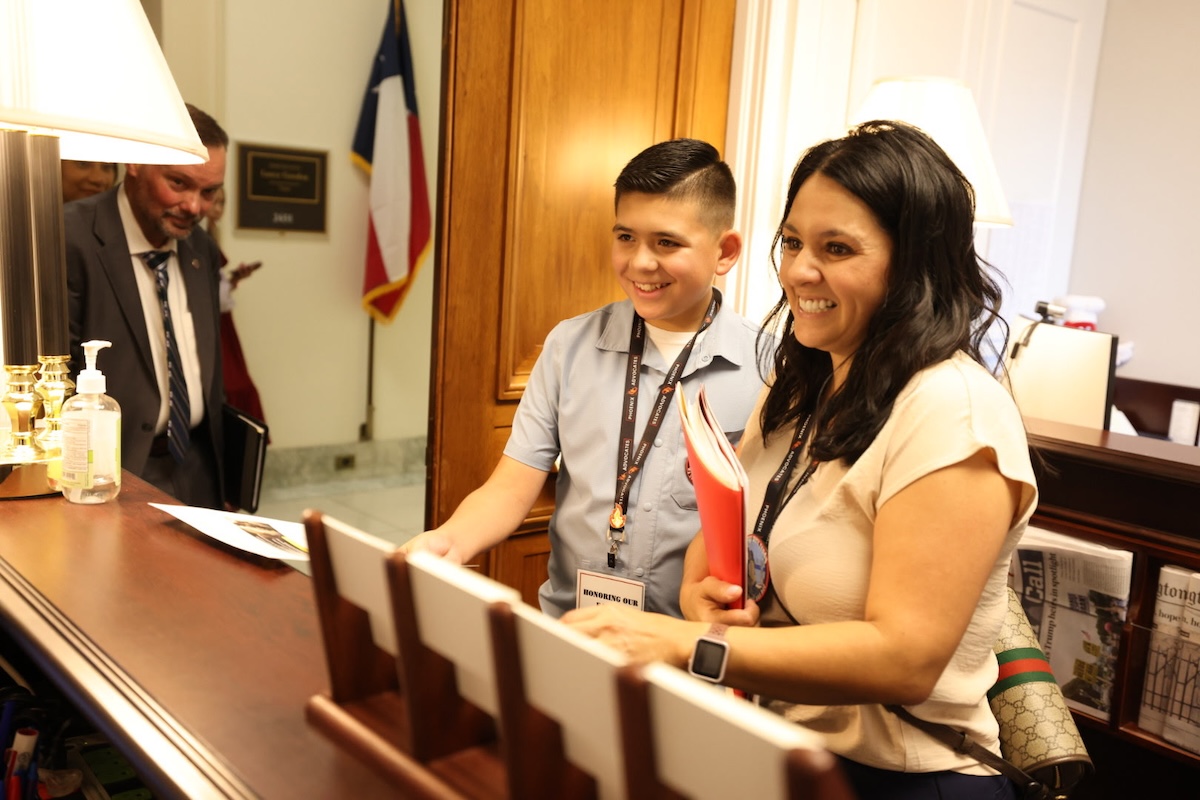After two years of lobbying virtually, Canadian IAFF members finally returned to Parliament Hill April 4-5 to ask their MPs and Senators to advance two important issues related to first responder safety.
A record number of nearly 160 IAFF leaders came to Ottawa and lobbied MPs and Senators to support Bill C-224, which proposes a national framework for the prevention and treatment of occupational cancer and to call for tougher penalties for those who assault on-duty fire fighters and paramedics, with delegates reporting strong support for both issues.
General President Edward Kelly and General Secretary-Treasurer Frank Líma both addressed delegates, with Kelly thanking them for taking time away from their families to participate in the lobby and emphasizing the need to advance both issues in the name of fire fighter safety.
“That’s all real-world stuff, and it’s all connected. And it matters how successful we are building those relationships with the people in power and making things happen for the families back home,” he said.
For the first time, the Canadian Legislative Conference’s featured a livestream of House of Commons proceedings, where Liberal MP Sherry Romanado (Longueuil-Charles-LeMoyne) led an hour of debate on Bill C-224, which she introduced in late January. In addition to a national framework on cancer in fire fighters, the bill also proposes a national proclamation making January Fire Fighter Cancer Awareness Month in Canada.
Shortly after the debate ended, Romanado was in the conference hotel meeting with delegates. She explained how her friendship with Montreal Local 125 President Chris Ross led to her bill and described how she has already started to build cross-party support in advance of a House of Commons vote that could take place later this year.
“I am confident Bill C-224 will become law,” she said to thundering applause, adding as the daughter and wife of fire fighters she understands the sacrifices fire fighters make every day. “When people are usually running out of the building because it’s on fire, you’re running in. But it’s after the bell goes off, once you return to the station, we need to make sure you’re okay,” she said.
Following her remarks, General President Kelly presented Romanado with an IAFF-themed fire helmet as a token of appreciation, a gesture that thrilled the Montreal-area MP.
Federal Emergency Preparedness Minister Bill Blair thanked fire fighters for continuing to work hard protecting Canadians during the pandemic. “Over the past two years, in the face of the global pandemic, you and your members have not taken a backward step,” he said. “And while many Canadians were told to work from home, you didn’t have that option – you continued to step up, to put yourselves in harm’s way, to be there for others, as you always have.”
Blair also commended fire fighters for responding to historic wildfires in western Canada last summer, explaining how he is mandated to create an International Centre of Excellence for Wildfire Resiliency that will focus on training and collaboration, and noted that the Liberal government has also partnered with the IAFF on Haz-Mat training, has introduced an action plan to protect fire fighters from harm caused by chemical flame retardants and how the federal government has also provided resources to address first responder mental health.
“We’ve worked hard over the last seven years to keep the promises we made, and it’s an acknowledgement of the importance of the work you all do,” Blair said.
Other speakers included Conservative MP Raquel Dancho (Kildonan-St. Paul, Man.), New Democratic Party MP Alistair MacGregor (Cowichan-Malahat-Langford, B.C.) and Green Party Interim Leader Amita Kuttner.
Also for the first time, the Canadian Legislative Conference welcomed a leader speaking on behalf of First Nations fire fighters. Michelle Vandevord, a fire fighter from the Muskoday First Nation Fire Department in Saskatchewan and President of the Aboriginal Firefighters Association of Canada, shared important perspectives about the funding challenges and other issues First Nations fire fighters face while trying to keep their communities safe.




